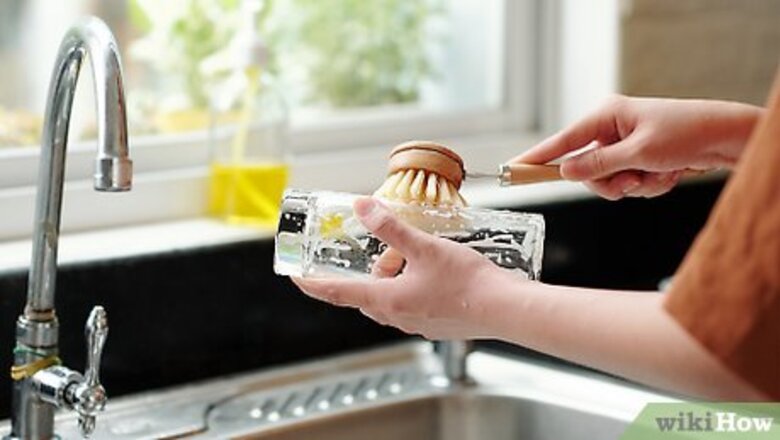
views
Giving Drinking Glasses a Basic Clean
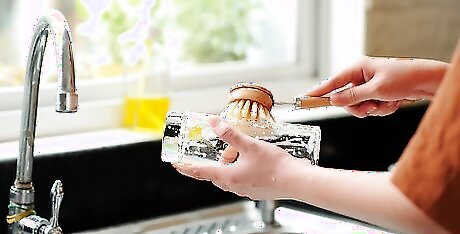
Clean glasses by hand. Fill your kitchen sink approximately one third to halfway full with warm water and add a few drops of dishwashing liquid. Using a clean sponge, gently wash your glasses inside and out. Rinse thoroughly. Avoid using more than a few drops of dish soap, as excess soap can lead to streaks and residue.
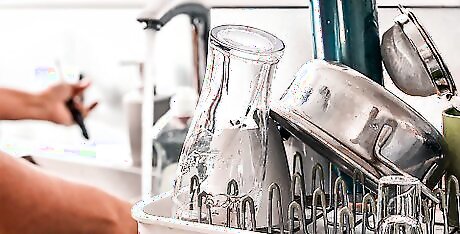
Air dry the glasses. Place clean glasses on a dish mat or clean towel to dry. Position glasses downwards, with the rim on the bottom. Avoid drying your glasses with a cloth, as this can leave a residue.
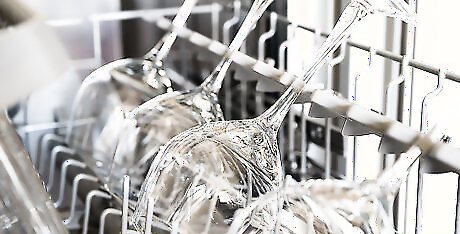
Using a dishwasher. Using a dishwasher is a less effective way to get glasses clean and cloud-free than hand washing. If you prefer using a dishwasher anyway, there are ways to improve the results. For more fragile glasses (e.g. wine glasses), choose a delicate cycle. Leave as much room as possible between glasses to prevent clinking or scraping. To prevent residue that sometimes remains on glasses after being run through the dishwasher, add ⁄4 c (59 ml) of white vinegar to the machine’s rinse cup.
Getting Rid of Cloudy Residue
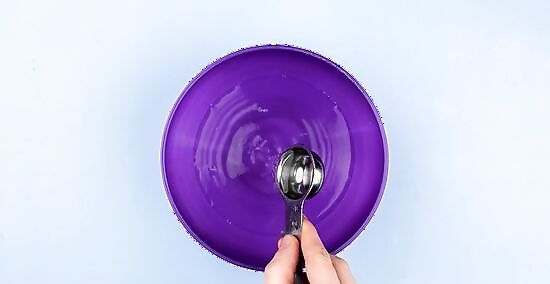
Make a vinegar solution. If your glasses are cloudy or have white streaks, clean them with vinegar. Fill a medium-sized bowl with white vinegar and warm water. Use two tablespoons of vinegar for every cup of water. You can also dry using nail polish remover (acetone) to remove hard water streaks.
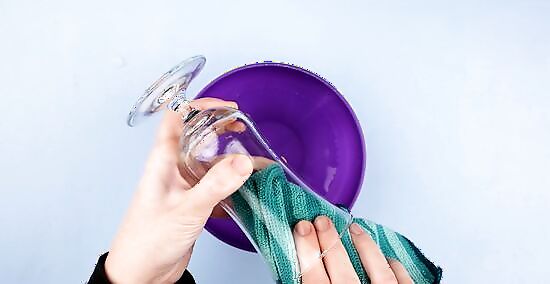
Wipe down the glasses. Dip a clean cloth into the vinegar solution. Gently wipe down the glasses with the cloth, both inside and out. Re-moisten the cloth as needed to ensure that your glasses get clean.
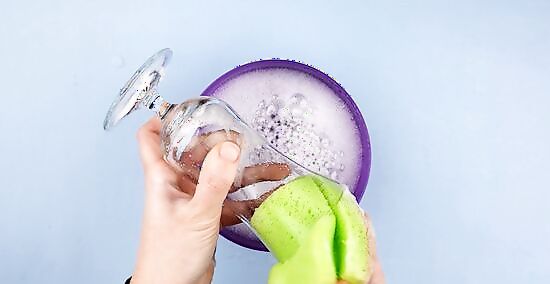
Rinse the glasses. While the smell of vinegar is strong, it will eventually dissipate after drying. To speed up the process, rinse the glasses in cold water to wash away the vinegar solution. Rinsing the glasses, or washing them as you normally would with dish soap, will ensure that the vinegar smell disappears faster.
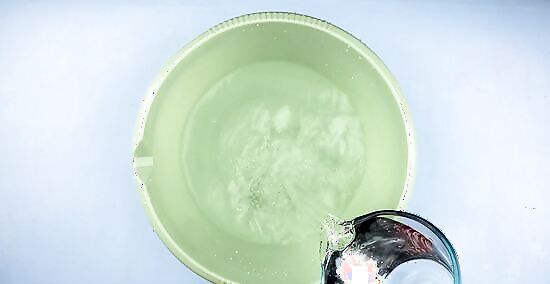
Soak glasses. If you have numerous glasses to clean, or if the cloudy deposits on your glasses are difficult to remove, soak them in a solution of equal parts white vinegar and warm water. Fill a basin with the vinegar and water, place your glasses in the basin, and let them sit for twenty minutes. After soaking, rinse the glasses with cold water and let them air dry. If the cloudy deposits don’t go away after you clean it, then your glass may be etched. If you have soft water, use less dishwasher detergent and don’t let the glasses dry under high heat.
Removing Dark Stains
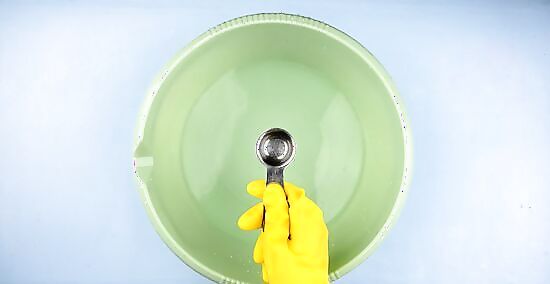
Make a bleach soak. If your drinking glasses have dark stains (e.g. coffee, lipstick), soak them in a bleach solution. Add one tablespoon of chlorine bleach to a gallon of warm water. Use rubber gloves and protect your clothing from contact with the bleach while cleaning.
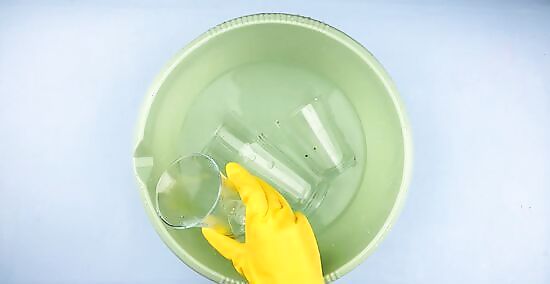
Soak your glasses. Gently place your drinking glasses in the bleach solution. Allow them to soak for approximately thirty minutes. Remove and rinse the glasses in cold water.
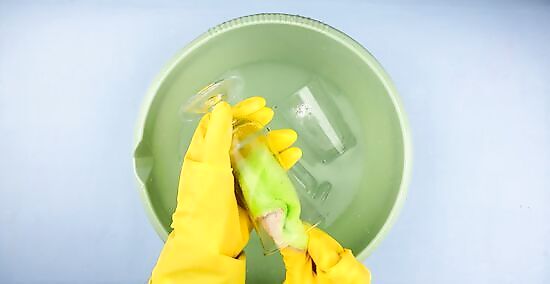
Scrub glasses with baking soda. If any stains remove after soaking, sprinkle the glasses with baking soda. Wet a clean sponge and gently scrub the glasses. Rinse them thoroughly and let them air dry.
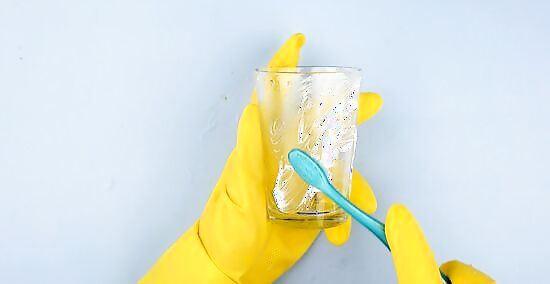
Use toothpaste. As an alternative method of removing dark stains, use basic white toothpaste (i.e. toothpaste that does not contain gels, breath freshening ingredients, or other additives). Use a clean, soft-bristle toothbrush to gently spread the toothpaste all over the inside and outside of the glasses. Rinse thoroughly with warm water and air dry.



















Comments
0 comment